
Education Policy PhD Specialization
The PhD specialization in Education policy is a broadly focused specialization that includes deep consideration of theory, methods and practice.
Theory: Students study the under-girding policy options, where they originate, and their links to cross discipline theoretical understandings.
Methods: The specialization and the Ph.D. program overall includes comprehensive study of the tools needed to analyze and evaluate policies and their impacts as well as how to engage in empirical policy research.
Practice: Located near Washington, DC, Mason students have the opportunity for advanced internships in national associations, think tanks, federal agencies, research offices, and the EdPolicyForward Center for Education Policy @George Mason University.
Flexibility: Each student designs her/his own program in consultation with a Program Advisory Committee chaired by an education policy faculty member. Some examples include policy and teacher education, policy and special education, policy and international education, and policy and education leadership to name a few.
Our Graduates are working in senior roles in national associations, as analysts in think tanks and R&D organizations, in federal agencies and in school divisions.
2024



June 3, 2024


February 21, 2024

2023
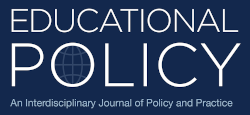



2022




October 12, 2022


October 11, 2022









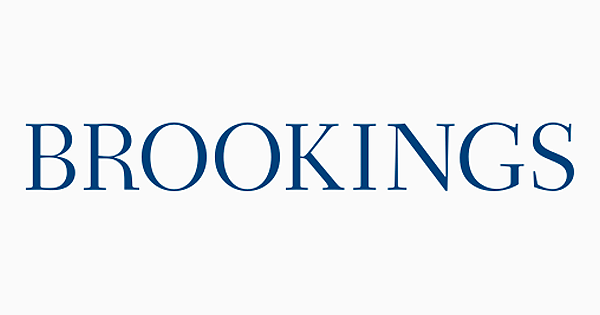

March 31, 2022



2021



November 9, 2021

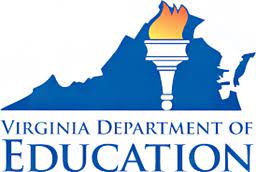




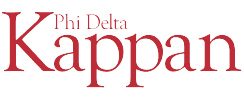
April 2021
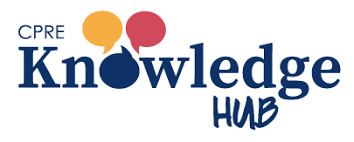
2020



December 10, 2020
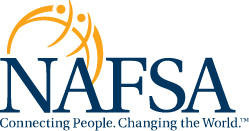
December 9, 2020


September 24, 2020






January 21, 2020

January 8, 2020
2019

December 11, 2019
Research by EdPolicyForward's co-director Matthew Steinberg was featured in The 74's 14 Charts That Changed the Way We Looked at America's Schools in 2019. This work finds that the closure of failing Philadelphia schools had a major impact on crime and played a key role in making the city safer. Read more here.

August 8, 2019
In New America's EdCentral blog, EdPolicyForward's Spiros Protopsaltis and New America's Clare McCann call out the Department of Education's use of scare tactics and threats, as part of its failed attempts to undermine the court-mandated implementation of Obama-era regulations on state consumer protections for online students. Read more here.

July 16, 2019
Research by EdPolicyForward's Matthew Steinberg found that additional revenue provided to schools in Texas based on Texas's school funding formula leads to improvements in student achievement, declines in dropout rates and increases in graduation rates. Read more here.

July 14, 2019
New research by EdPolicyForward's Matthew Steinberg finds that the closure of failing Philadelphia schools had a major impact on crime and played a key role in making the city safer. Read more here.

June 26, 2019
While announcing his proposal to cancel student loan debt, the Vermont Senator used a fact about the Pell grant's diminishing purchasing value from a paper co-authored by EdPolicyForward's Spiros Protopsaltis. Read more here.

June 6, 2019
Research by EdPolicyForward's Matthew Steinberg found that the budget cuts during the Great Recession had the largest impact on the test scores of students enrolled in low-income schools. Read more here.

June 5, 2019
EdPolicyForward's Spiros Protopsaltis is quoted in a Chronicle of Higher Education story about the financial problems facing the Accrediting Council for Independent Colleges and Schools and how its struggle for survival raises major concerns for students and taxpayers. Read more here.

May 7, 2019
EdPolicyForward's Spiros Protopsaltis is quoted in a Wall Street Journal story about the design flaws and serious implementation challenges of the federal public service loans forgiveness program. Read more here.

April 29, 2019
EdPolicyForward's Seth Hunter finds strong negative bias in observation scores at thresholds where Tennessee policy assigns observations. Evidence strongly suggests that teachers receive substantially lower observation scores when state policy assigns them more observations, independent of observed performance. In light of these findings, suggestions for policymakers are found in this policy brief. Read more here.

April 10, 2019
EdPolicyForward's Seth Hunter finds that the receipt of more frequent policy-assigned observations by relatively effective Tennessee teachers does not improve student achievement. In light of these findings, suggestions for policymakers are found in his policy brief here.

March 25, 2019
EdPolicyForward's Spiros Protopsaltis is quoted by InsideHigherEd in the wake of the recent college admissions scandal and concerns about the sector's overall performance and growing public disapproval. Read more here.

February 22, 2019
EdPolicyForward's Spiros Protopsaltis and co-author Sandy Baum of the Urban Institute argue in the Chronicle of Higher Education that loosening federal standards for online higher education would likely lead to even more unequal outcomes, especially for disadvantaged students. Read more here.

February 7, 2019
MarketWatch examines the realities of student debt that were discussed in a recent Education Writers Association panel that included EdPolicyForward’s Spiros Protopsaltis. Read more here.

February 4, 2019
The Hechinger Report writes about a recent paper co-authored by EdPolicyForward’s Spiros Protopsaltis that finds at-risk students underperforming in fully online courses and discusses the critical role of student-instructor interaction in providing a quality educational experience. Read more here.

January 31, 2019
Education Dive explores the higher education agenda in the new Congress and quotes EdPolicyForward’s Spiros Protopsaltis on his concerns about deregulation in the name of innovation coming at the expense of student and consumer protections. Read more here.

January 27, 2019
EdPolicyForward’s Anne Holton urges Virginia lawmakers to support funding for the high-quality education children deserve in the Richmond Times-Dispatch. Read more here.


January 14, 2019
EdPolicyForward’s Diana D’Amico writes in The Washington Post about how the growth of suburban schools contributed to the decline of urban schools and concludes that teacher strikes cannot address the core challenges facing our school system. Read more here.

January 14, 2019
EdPolicyForward’s Spiros Protopsaltis is quoted by InsideHigherEd in the wake of the Department of Education’s final audit determination in response to its Inspector General’s findings on Western Governors University’s violations of key online education regulations. Read more here.
2018

December 10, 2018
EdPolicyForward’s Spiros Protopsaltis commented on the recent trend of nonprofit conversions in the for-profit college industry for an InsideHigherEd story on the closure of a big chain’s campuses. Read more here.

December 5, 2018
On the Education Gadfly Show podcast, EdPolicyForward’s Samantha Viano explains why online courses are not well suited to meet the needs of at-risk students, and gives an overview of her research on the effectiveness of these courses. You can listen to the podcast here.

November 30, 2018
In the Thomas B. Fordham Institute’s Flypaper blog series, EdPolicyForward’s Samantha Viano focuses on companies that provide credit recovery courses to secondary schools that are rarely required to share data or show success in order to gain access to public school students. Read more here.

November 29, 2018
EdPolicyForward’s Samantha Viano consulted on a report from the Thomas B. Fordham Institute using the Office of Civil Rights Data Collection to describe credit recovery programs across schools in the 2015-16 school year. Read more here.

November 28, 2018
A new study in Teachers College Record co-authored by EdPolicyForward’s Samantha Viano presents evidence on an innovative model utilizing improvement science to support an innovation co-created by teachers. Read more here.

October 15, 2018
EdPolicyForward’s Spiros Protopsaltis is quoted in an InsideHigherEd story that examines the potential for increased Congressional scrutiny of the Trump Administration’s education agenda under a Democratic-controlled House of Representatives. Read more here.

September 21, 2018
The Richmond Times-Dispatch covers a new report, co-authored by EdPolicyForward’s Anne Holton, which reviewed equity and parental engagement in special education for Henrico County Public Schools. Read more here.

September 12, 2018
EdPolicyForward’s Spiros Protopsaltis provides comment to the Department of Education regarding the proposed rulemaking committee and calls for greater focus on student outcomes, transparency, and rigor in accreditation. Read the comments here.

August 8, 2018
As the US Department of Education considers another round of deregulation, EdPolicyForward’s Spiros Protopsaltis is quoted cautioning against weakening rules for faculty-student interactions in online programs in InsideHigherEd. Read full article here.

June 13, 2018
In a blog for the Learning Policy Institute’s “Education and the Path to Equity” series, EdPolicyForward’s Anne Holton takes stock of the progress made 50 years after the seminal Kerner Commission report and reflects on her own family’s involvement in integrating schools. Read more here.

April 16, 2018
EdPolicyForward’S Spiros Protopsaltis and co-author Clare McCann discuss recent efforts to deregulate financial aid safeguards in an InsideHigherEd op-ed. Read more here.
2017

December 11, 2017
As the for-profit college sector stands to benefit from new rounds of deregulation, EdPolicyForward’s Spiros Protopsaltis calls for greater accountability and a return to bipartisanship efforts to defend students and taxpayers in the Washington Post. Read full article here.

November 30, 2017
EdPolicyForward’s Spiros Protopsaltis consulted on a new report by the Center on Budget Policy Priorities that examines the erosion of bipartisanship in higher education accountability over the past 20 years and its implications and calls for a renewed effort to protect students and taxpayers from predatory colleges. Read more here.

October 13, 2017
“Looking Back, Looking Forward: A Conversation about the Changing Landscape of Education Policy” brought together GMU faculty, students and alumni to discuss the current landscape of education issues, their implication for practice in schools, and the learning and development of students in Virginia and throughout the nation. Read more here.

September 21, 2017
EdPolicyForward’s Dr. Spiros Protopsaltis is quoted in InsideHigherEd discussing the implications of the Office of Inspector General’s audit of Western Governors University for safeguarding the integrity of education and federal aid. Read more here.

September 20, 2017
EdPolicyForward’s Spiros Protopsaltis provides commentary to the Department of Education on the evaluation of existing regulations, warning about the dangers of weakening student and taxpayer protections against predatory practices from higher education institutions. Read more here.

June 17, 2017
Writing in the Richmond Times-Dispatch, EdPolicyForward’s Anne Holton encourages city leaders to adopt the mayor’s proposed Education Compact. Read more here.

July 13, 2017
EdPolicyForward’s Spiros Protopsaltis consulted on a new report by the Center on Budget Policy Priorities that reviews the evidence on the Pell Grant and recommends specific ways through which it can be strengthened and enhanced to further support college access and success. Read more here.

July 13, 2017
EdPolicyForward’S Spiros Protopsaltis is quoted by The Chronicle of Higher Education in an article discussing vision change in the Department of Education under Secretary Betsy DeVos, calling for policies benefiting students and taxpayers. Read more here.

